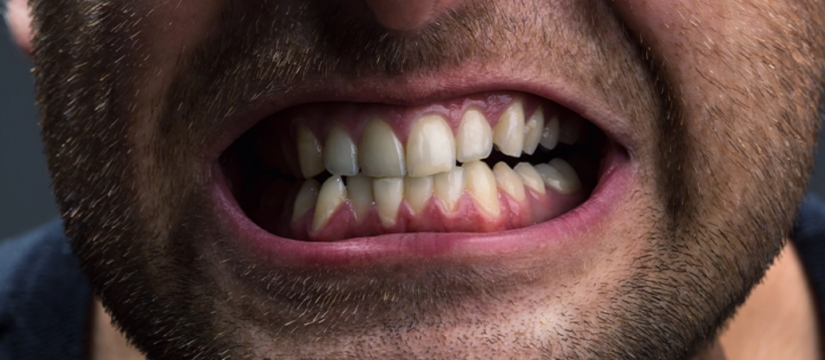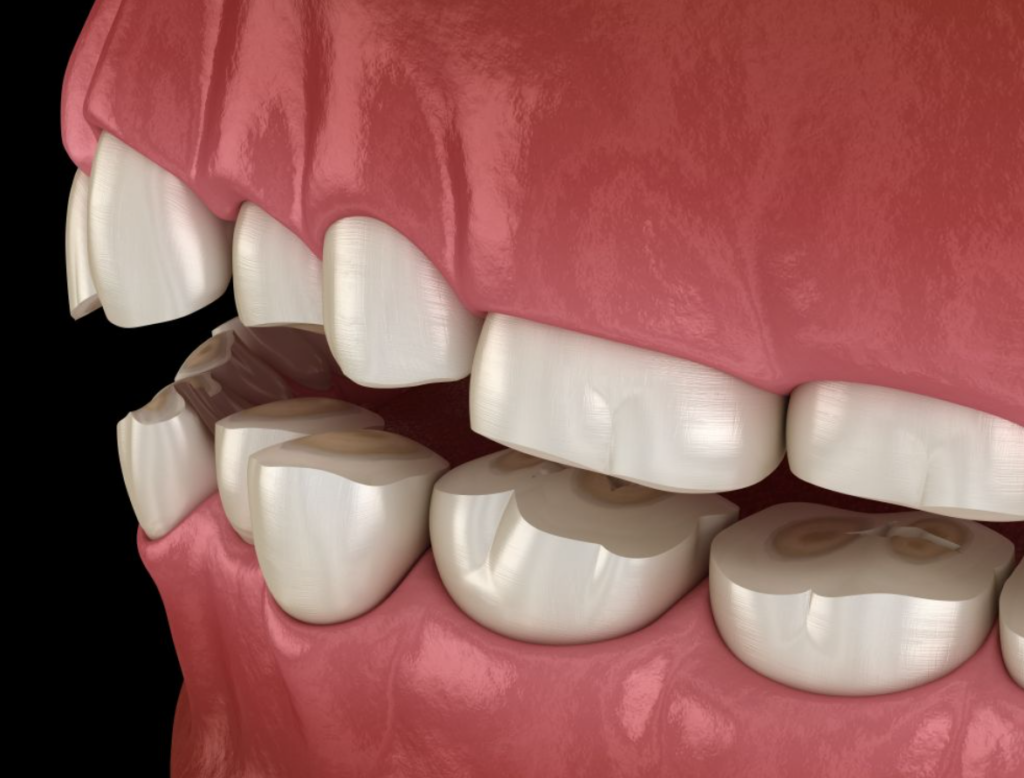
Teeth grinding, also known as bruxism, is a common dental issue that affects millions of people worldwide. At Rockville Dental Arts, a trusted dentist in Rockville MD, we often see patients dealing with the consequences of this habit. In this blog post, we’ll explore the causes of bruxism, its effects on oral health, and the various treatment options available.
Understanding Bruxism
Bruxism is the medical term for the involuntary grinding or clenching of teeth. This condition can occur during the day (awake bruxism) or at night while sleeping (sleep bruxism). Many people are unaware they have this habit, especially if it occurs during sleep, until they experience symptoms or their dentist notices signs of wear on their teeth.
Causes of Teeth Grinding
The exact causes of bruxism are not fully understood, but several factors can contribute to its development:
- Stress and anxiety: Emotional stress is one of the most common triggers for teeth grinding.
- Sleep disorders: Conditions like sleep apnea can be associated with bruxism.
- Misaligned teeth or bite problems: An improper bite can lead to unconscious grinding.
- Certain medications: Some antidepressants and other drugs may increase the risk of bruxism.
- Lifestyle factors: Excessive caffeine, alcohol, or tobacco use can exacerbate teeth grinding.
- Age: Bruxism is more common in children but can affect adults as well.
- Genetics: Some studies suggest a genetic predisposition to teeth grinding.
Effects of Bruxism on Oral Health
Chronic teeth grinding can have several negative impacts on your oral health:
- Tooth wear and damage: Excessive grinding can wear down tooth enamel, leading to sensitivity and increased risk of decay.
- Fractured or chipped teeth: The force of grinding can cause teeth to crack, chip, or fracture.
- Jaw pain and TMJ disorders: Bruxism can lead to temporomandibular joint (TMJ) problems, causing jaw pain and difficulty in opening or closing the mouth.
- Headaches: Chronic grinding can result in frequent headaches, especially in the morning.
- Facial pain: The muscles used in grinding can become sore, leading to facial pain and tension.
- Tooth loosening: Severe cases of bruxism can cause teeth to become loose over time.
- Sleep disturbances: Grinding can disrupt sleep patterns for both the individual and their sleep partner.
Diagnosing Bruxism
At Rockville Dental Arts, we use several methods to diagnose bruxism:
- Physical examination: We look for signs of tooth wear, jaw tenderness, and enlarged jaw muscles.
- Dental x-rays: These can help detect changes in tooth structure and bone density.
- Sleep studies: In some cases, we may recommend a sleep study to rule out sleep disorders.
- Patient history: We discuss symptoms and potential triggers with our patients.
Treatment Options for Teeth Grinding
The treatment for bruxism depends on its cause and severity. At Rockville Dental Arts, we offer several options:
- Dental night guards: Custom-fitted mouth guards can protect teeth from grinding during sleep.
- Dental correction: If misaligned teeth are the cause, we may recommend orthodontic treatment or reshaping of tooth surfaces.
- Stress management: For stress-related bruxism, we may suggest relaxation techniques or referral to a therapist.
- Botox injections: In some cases, Botox can be used to relax the jaw muscles and reduce grinding.
- Medication: For severe cases, muscle relaxants or anti-anxiety medications may be prescribed.
- Biofeedback: This technique helps patients become aware of their grinding habit and learn to control it.
- Lifestyle changes: Reducing caffeine and alcohol intake, and avoiding chewing on non-food items can help.
Preventing Bruxism
While not all cases of bruxism can be prevented, there are steps you can take to reduce your risk:
- Manage stress: Practice stress-reduction techniques like meditation or yoga.
- Improve sleep hygiene: Establish a regular sleep schedule and create a relaxing bedtime routine.
- Avoid stimulants: Limit caffeine and avoid it entirely in the evening.
- Stay hydrated: Drinking plenty of water can help reduce muscle tension.
- Be mindful: Pay attention to clenching or grinding during the day and consciously relax your jaw.
- Regular dental check-ups: Visit Rockville Dental Arts for regular examinations to catch signs of bruxism early.
When to Seek Professional Help
If you experience any of the following symptoms, it’s time to consult with a dentist at Rockville Dental Arts:
– Persistent jaw pain or stiffness
– Worn, chipped, or loose teeth
– Increased tooth sensitivity
– Frequent headaches, especially in the morning
– Disrupted sleep or complaints from your sleep partner about grinding noises
Long-term Management of Bruxism
Managing bruxism is often an ongoing process. At Rockville Dental Arts, we work closely with our patients to develop long-term strategies for controlling teeth grinding. This may involve regular check-ups, adjustments to night guards, and ongoing discussions about stress management and lifestyle factors.
Conclusion
Teeth grinding is a common but serious dental issue that can have significant impacts on your oral health and overall well-being. At Rockville Dental Arts, we’re committed to helping our patients in Rockville, MD, find effective solutions for bruxism. By understanding the causes and effects of teeth grinding and exploring various treatment options, we can work together to protect your smile and improve your quality of life.
If you suspect you might be grinding your teeth or are experiencing any symptoms of bruxism, don’t hesitate to reach out to Rockville Dental Arts. Our experienced team is here to provide expert care and personalized treatment plans to address your unique needs. Remember, early intervention is key to preventing long-term damage from teeth grinding. Take the first step towards a healthier smile by scheduling an appointment with us today.

